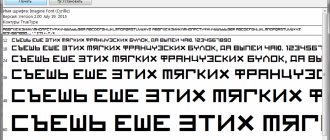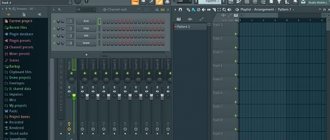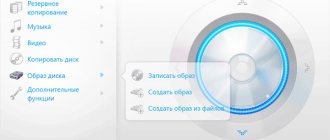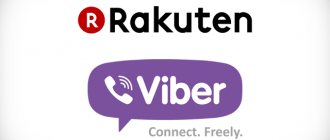TheAppBuilder
TheAppBuilder is a free online service for quickly creating mobile applications. TheAppBuilder creates applications using a designer and standard templates - for business, events, education, music, sports, etc. Created applications are free, and for 5 USD per month You can disable the display of third-party advertising in the created application. TheAppBuilder allows you to create Android, iOS and Windows Mobile applications.
TheAppBuilder website: https://www.theappbuilder.com
Cloud IDEs
Most desktop applications have moved to the cloud, so it is not surprising that cloud environments are also becoming popular among programmers. Not everyone immediately trusts cloud IDEs, but popular tools like Github and Pastebin help you get used to the fact that the source code is stored not on the local machine, but on a third-party server.
Cloud9
After a few minutes of working in Cloud9, you get the impression that you are in paradise for programmers. The interface is written in JavaScript, and the server part is written in NodeJS. Although Cloud9 is favored by developers and interface designers, it supports syntax highlighting for C#, C++, Python, Perl, Ruby, Scala and some other languages.
Vim's built-in mode is a nice touch, as is support for popular version control systems like Git, Mercurial, and SVN. With CSSLint and JSBeautify, it is one of the most beautiful development environments.
The system is paid, but there is a free tariff plan.
Codeanywhere
Another app creation tool that often tops lists of the best is Codeanywhere. This cloud-friendly IDE supports code highlighting for HTML, CSS, JavaScript, PHP, MySQL and other languages. With apps for iOS, Android, and BlackBerry, Codeanywhere allows programmers to work anywhere.
Additionally, Codeanywhere supports Dropbox and SFTP, which make it easy to back up project files and share them with colleagues. It's not the most fully featured environment, but it gets the job done perfectly.
The system is paid, but there is a free tariff plan.
Eclipse Che
Eclipse Che is a cloud-based developer workspace and built-in IDE. Che provides an open source remote platform for multi-user application creation.
Main features:
- workspaces including runtimes and IDEs,
- workstation server with RESTful web services,
- cloud IDE,
- language plugins, platforms and tools,
- SDK for creating plugins and assemblies.
Eclipse Che has two builds - single-user and multi-user. The first does not have components that provide multitenancy and differentiation of access rights. In this case, the server remains unprotected, but for local development it is a good choice.
Multi-tenant provides multi-tenancy. User accounts and workstations are isolated, and the KeyCloak mechanism is used for registration, management and authentication. Permissions APIs govern access to objects such as spaces, stacks, and organizations. User information is stored in a migration-aware database (PostgreSQL).
Neutron Drive
Creating a universal cloud IDE from scratch is a serious task, so developers prefer to create projects based on ready-made open source solutions. Neutron IDE is based on the Ace code editor and combines the functionality of SFTP clients and browser editors, allowing programmers to edit files on the fly on their servers from anywhere in the world.
With support for customizable Vi and Emacs hotkeys, as well as TextMate visual themes, this cloud-based environment is flexible and customizable.
Orion
The popular Eclipse Java IDE has been a reliable mainstay in the development world for many years. Orion is the next step in bringing the Eclipse experience to the cloud. For now it is mostly used for the front-end, so the environment is limited to HTML and JavaScript for the most part, but work is underway and features are being added. Besides Firebug support, a huge plus is the intuitive Eclipse-style interface.
Comparison of cloud IDEs
Integrated Development Environments (IDEs)
Eclipse
For developers who frequently change programming platforms and languages, Eclipse may be the ideal solution. The environment has good support for Java, JavaScript and many other popular languages. It is also convenient to create applications for mobile devices.
NetBeans
NetBeans IDE has a huge number of fans all over the world. The environment is designed for convenient development of mobile, desktop and web applications.
The program has a pre-installed code analyzer for the Java language, support for C++ and PHP. For the convenience of the web developer, modern HTML5 and JavaScript processing tools are built in, including the NodeJS platform and the AngularJS framework.
NetBeans provides syntactic and semantic highlighting of code, indents code, and facilitates refactoring. Some nice little things include snippets, tips and code fragment generators.
Geany
One of the easiest and fastest environments for web development. Geany provides convenient work with HTML, XML, PHP and other web programming languages.
Basic features:
- support and syntax highlighting for many languages;
- folding (folding code blocks);
- auto-completion and hints;
- snippets;
- convenient navigation;
- project management;
- plugin manager;
- a system for processing code from compilation to execution.
Light Table
The main idea of another great Light Table environment is that comfortable development requires not just a code editor window and a folder manager, but a full-fledged and convenient workspace. The IDE allows you to move elements, bringing the most necessary ones forward, to create the most convenient interface.
JetBrains
There is not one IDE, but several at once. The company creates specialized development environments for different languages - choose according to your taste:
- RubyMine - Ruby, Ruby on Rails;
- PyCharm - Python;
- PhpStorm - PHP;
- WebStorm - HTML + CSS + JS;
- IntelliJ IDEA - Java;
- AppCode - Objective-C;
- CLion - C, C++;
- GoLand - Go;
- Rider - .NET.
The advantages of such environments for web development are obvious. They are powerful and tailored to a specific language with all the features of syntax and logic. These are intelligent editors with the widest capabilities for analyzing, debugging, testing and refactoring code. All IDEs allow you to easily navigate your project and support version control systems.
Disadvantages include increased demands on system resources and price (all products have a free trial period of 30 days).
Comparison of frameworks for web development
AppGlobus
AppGlobus is a paid, one of the Russian online mobile application designers that allows users to independently create and publish their application in the App Store and Google Play.
AppGlobus uses a new design and capabilities of the Ionic Framework, which significantly improves the quality of development, and makes it possible to create mobile applications on HTML5, iOS, Android even without programming skills.
At the moment, AppGlobus is offered in 8 languages, including Russian.
AppGlobus.com offers the following packages:
- STARTAP - 900 rub./month. Applications: HTML5/Android, admin panel, store, no restrictions on Push, no restrictions on installations, no advertising.
- Applications for both Android and iOS, admin panel, store, no restrictions on Push, no restrictions on installations, no advertising.
- Applications: Windows/Android/iOS, admin panel, store, no restrictions on Push, no restrictions on installations, no advertising.
- Applications: Windows/Android/iOS, custom development, we will publish it in the App Store and Google Play ourselves, we will provide the source code
AppGlobus website: https://appglobus.com/
Text editors for web development
Komodo Edit
Komodo Edit is a shortened version of Komodo IDE. Includes basic features for creating web applications. In addition, extensions are included to add language support or useful functions such as compilation of LESS and SASS files.
Komodo Edit doesn't stand out as the best among other editors, but it is suitable for everyday work, especially when working with XML.
Main features:
- multilingual,
- code completion,
- tooltips,
- multiple text selection,
- Project Manager,
- skins and icon sets,
- tracking changes,
- quick navigation through parts of the editor (commando),
- integration with Kopy.io.
Bluefish
Bluefish is a fully featured code editor with the following notable features:
- spell checking taking into account the specific features of the programming language,
- code completion,
- snippets,
- project management,
- autosave.
It's a flexible tool for web developers, but not suitable for designers who need a web-centric or WYSIWYG editor.
Vim
Vim is an enhanced version of the UNIX text editor. It was not created specifically for code editing, but numerous extensions fix this. To study this editor, we created an online game - Vim Adventures, and we have already prepared a cheat sheet on the main Vim commands.
Course "IT Project Management"
Start September 17, 7 months, Online, From 8,000 to 88,000 RUR
tproger.ru
Events and courses on tproger.ru
Main features:
- endless story of cancellation,
- a wide range of plugins,
- support for hundreds of programming languages and file formats,
- powerful search and replace,
- integration with third party tools.
GNU Emacs
Like the Vi text editor, GNU Emacs comes standard on most Linux systems. Emacs is more complex, but contains more features:
- content-aware editing modes, including syntax highlighting,
- documentation with a guide for beginners,
- full Unicode support,
- flexible configuration using Emacs Lisp or GUI,
- additional features such as a project planner, email and news client, debugger and calendar,
- system for downloading and installing extensions.
Adobe Brackets
Brackets is a young open source text editor for web developers, focused on visual tools and preprocessor support. It makes it easy to design a page in a browser. Suitable for web designers and front-end developers.
Main features:
- when editing HTML code, the CSS styles of the elements are displayed in a pop-up window for on-the-fly editing,
- viewing HTML code in the browser is implemented in real time,
- Importing images from PSD files is possible without Adobe Photoshop,
- Built-in tools make it easy to work with LESS and SASS files.
Visual Studio Code
Visual Studio Code is a lightweight yet powerful source code editor. In the initial configuration it is used for editing code in JavaScript, TypeScript and Node.JS, and with the help of extensions it supports C++, C#, Python and PHP.
Visual Studio Code not only performs autocompletion, but does it smartly: using IntelliSense technology, it completes the names of declared variables, functions and modules, and also makes a link to the corresponding section of the documentation. You can debug code directly from the editor, launch an application for debugging, and attach to running applications.
Atom from Github
Atom is a text editor with many settings, but even with the standard configuration it helps you work productively.
Atom comes with a built-in package manager that lets you find, install, and even create your own packages. Four user interfaces and eight syntax themes are preinstalled in dark and light colors. Community created themes are also available.
Main features:
- smart auto-completion,
- a file manager that makes it easy to view both individual files and entire projects,
- multi-panel interface allows you to separate the interface for easy comparison and editing of code in several files,
- Find and replace function, preview and replace text in one file or project.
Error handling this external URL











